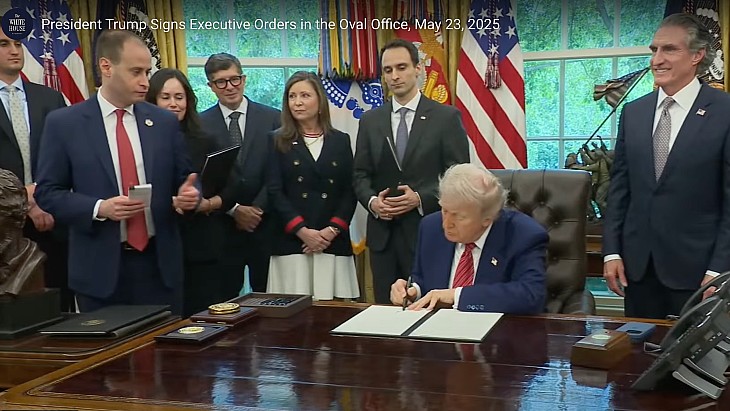Bargain for a nuclear hedge against gas
Belarus has signed a range of energy agreements with Russia, handing over its gas supply network while cementing progress toward a nuclear power plant to offset the fuel.
Intergovernmental talks in Moscow last week completed strategic negotiations on gas, including price, transit tariffs and terms under which Russia's Gazprom will take 100% ownership of Beltransgaz, the gas transmission network. Gazprom will pay $2.5 billion for the remaining 50% of Beltransgaz shares, repeating a transaction carried out in May 2007.
The former Soviet state imports the vast majority of the gas used for industry and power generation from Russia, but will benefit from a price significantly lower than its neighbours in the European Union.
The deals were sealed by a ceremony involving both countries' presidents and prime ministers, Dmitry Medvedev and Vladimir Putin as well as Alexander Lukashenko and Mikhail Myanikovich. It was hailed as a new era in energy cooperation.
The move establishes three export routes for natural gas sourced in the Yamal Peninsula of central Russia's Arctic coast: one via Ukraine that serves south-eastern Europe; the new Nordstream pipeline that runs under the Baltic sea to surface in Germany; and now the Belarusian network which gives a major direct connection into Poland. This is network "is the shortest and cheapest way to Europe," said Mikhail Kovalev of Belarusian State University. He added that Gazprom would "convince the Europeans to buy more gas" and thereby keep all the connections busy.
Despite deep cooperation between the countries on energy, there are "no links" between the gas agreements and plans for a Russian-built nuclear power plant, said Nikolai Grusha, head of the nuclear energy department of the energy ministry.
Nevertheless, Mikhail Filimonov of the nuclear construction directorate noted that "the nuclear power plant is meant solely for Belarus' needs to substitute some part of very expensive gas." He said the nuclear power plant would prevent the need for about 5 billion cubic metres of gas per year. This compares to the 22.5 billion cubic metres Gazprom expects to sell to Belarus in 2012.
The price of gas just agreed for Belarus is $165.50 per 1000 cubic metres, which puts a figure of $827 million per year on the imports that could be avoided. By contrast, uranium fuel and waste management for the two reactors would cost less than $200 million per year, giving very significant savings once the cost of construction and capital have been met. The economics tally with Russia's policy of expanding domestic nuclear and hydro to achieve secure low-carbon electricity generation at home while simultaneously freeing up gas as a profitable and politically powerful export.
A 'general contract' for the construction of the Ostrovets nuclear power plant is in preparation, envisaging two 1200 MWe AES-2006 model pressurized water reactors. Site preparation has already begun and the reactors could begin their 60-year operating lives in 2017 and 2018.
In late October a government announcement detailed Belarus's progress towards these goals after a visit by prime minister Mikhail Myasnikovich to Moscow. The countries are "gradually signing the whole package of documents for the project." Myasnikovich said, "I think we will sign the general contract and the credit agreement at the beginning of next year, in the first quarter." The cost was estimated at $9.4 billion.
Researched and written
by World Nuclear News











